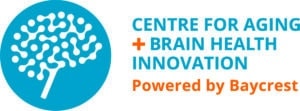Steered by an international and prestigious committee, the AgeingFit conference programme is designed to address
the main issues of the healthy ageing and care sectors: from major financial and regulatory aspects to the latest innovations in health, nutrition and care.
The programme is organised around 4 tracks addressing the challenges of innovation for ageing well, from prevention to care:
PLENARY SESSION
DAY 1 – Monday, March 11th
11.00 am – 12.30 pm
Making the Silver Economy a reality: Changing perspective to make ageing a source of new economic opportunities
At a time when ageing populations are transforming our societies, it’s crucial to rethink how we perceive and harness the potential of ageing. This plenary session will examine the economic dimensions of ageing and how we can move from viewing ageing as a societal cost to embracing it as a dynamic source of new economic opportunities.
How is ageing reshaping our economies and what are the far-reaching implications for planning for the future? How can we recognise ageing as a powerful opportunity for economic growth, challenging the prevailing perception of ageing as a financial burden? What are the challenges and opportunities in realising the full potential of a Silver Economy? What is the role of policy and regulation in shaping its growth, and what strategies can governments adopt to encourage innovation and investment? Which sectors and industries have the most to gain from addressing the specific needs and preferences of an ageing population, and how can they tap into this huge potential? What inspiring success stories can guide us towards innovative models within the Silver Economy, and how can they be replicated and adapted for wider impact? Beyond the economy, how can we create a more inclusive society and redefine the role of older adults within it?
Moderator: Emi Michael, Global Health Manager, Economist Impact ![]()
- John Klepper, Co-Founder & CEO, PIPRA

- Charles Bark, CEO, HiNounou Sensio

- Mike Scipio, CEO, IIX Care

- Saila Rinne, Acting Head of Unit, Head of Sector for policy, DG CONNECT, Unit “eHealth, Well-Being and Ageing”, European Commission

- Mel Barsky, Director, CABHI

- Caroline de Beukelaar, Clinical Trial Center Manager, AZ Groeninge

TRACK 1: Developing innovations in the Silver Economy
As the Silver Economy continues to evolve, this track aims to provide clear guidance on how to enter this market, and how to create innovative products, services and technologies that meet the needs of an ageing population. For entrepreneurs, start-ups, investors, researchers, and industry professionals interested in creating and investing in exciting innovations, this track offers insights from seasoned experts to guide you through the most up-to-date investment strategies, regulatory frameworks and distribution landscapes.
DAY 1 – Monday, March 11th
9.30 am – 10.30 am
![]()
Panel discussion
Taking healthy ageing to the next level: Are new sources of capital investment the key and where to find them?
One of the critical enablers of progress is access to capital investment that can support the development and scaling of groundbreaking ideas. The Silver Economy is a complex ecosystem and being aware of the possibilities is essential, be it private investment through venture capitalists, impact investment, public investment through government support or funding programmes.
Our panel of experts will explore the evolving funding landscape for healthy ageing innovations and provide insights into where to find the resources needed to take this critical sector to new heights. What are the obstacles to secure funding in the industry? What are alternative and emerging sources of funding? Are collaboration in funding and the synergy between sources a solution? What are the criteria and expectations of investors when evaluating healthy ageing innovations?
Moderator: Alexandre Faure, Founder & CEO, Sweet Home ![]()
- Jordi Ferrer, Investment Director, Ship2B Ventures

- James Mayer, Partner, CABHI Ventures

- Soyoung Park, Venture Partner, VU Venture Partners

DAY 2 – Tuesday, March 12th
9.00 am – 10.00 am
![]()
Toolbox session
How to ensure your innovation design is inclusive enough?
Creating solutions that truly cater to the diverse needs of an ageing population requires a thoughtful approach to design and a deep commitment to inclusivity. What are the design principles and guidelines to adopt in order to make innovation user friendly for older people?
How to involve and engage future users in the design process? What solutions already exist and what can be improved? Our panel of experts will delve into the strategy to make sure the innovations being developed are inclusive enough to answer the needs of older adults?
Moderator: Stela Shiroka, R&I Consultant, INNOSTAR Consulting ![]()
- Carina Dantas, CEO, SHINE 2Europe

- Willeke van Staalduinen, CEO, AFEdemy

- Lars Kayser, Professor of Health Informatics, University of Copenhagen

- Federica Calabria, Project Manager – Psychologist, Fondazione Chiossone Impresa Sociale

TRACK 2: Preventing, diagnosing and treating age-related conditions
Health is no longer solely focused on treatment to proactive prevention and intervention. This track explores the critical elements of lifelong prevention, behavioral change, and targeted approaches to age-related conditions. Delving into the realms of nutrition, physical activity, and the biology of ageing, it encompasses a comprehensive view of health for older adults.
Intended for healthcare professionals, policymakers, nutritionists, clinicians, and researchers, this track will explore strategies, ongoing research, and concrete initiatives that contribute to the holistic well-being of ageing individuals and society.
DAY 1 – Monday, March 11th
4.00 pm – 5.00 pm
![]()
Case studies
Innovative therapeutic approaches and diagnostic for neurodegenerative diseases
Neurodegenerative diseases represent a significant challenge in ageing, impacting the quality of life and independence of older adults. There is an urgent need for innovative therapeutic approaches and diagnostic. This case study brings together leading experts, researchers, and clinicians to explore the cutting-edge innovations and therapeutic approaches that hold promise in the battle against neurodegenerative conditions. What are the latest breakthroughs in the neurodegenerative disease research and knowledge? What are the clinical perspectives in treating patients suffering from Alzheimer or Parkinson? What is the impact of innovative therapeutic approaches on the patient’s lives? What are the perspectives in terms of prevention?
Moderator: Manfred Ruthsatz, Executive Director, Nutrition+HealthCARE ![]()
- Erika Rovini, Assistant Professor, University of Florence, UNIFI

- Mark Ross, Associate Professor in Exercise Physiology, Heriot-Watt University

- Iuliana Popescu, Research scientist, Barnstable Brown Diabetes Research Center, University of Kentucky

- Manon Lenain, Neuropsychologist, Institut Pasteur de Lille

DAY 2 – Tuesday, March 12th
11.45 am – 12.45 pm
![]()
Case studies
Driving behaviour change for active ageing: Innovations in promoting physical activity and prevention strategies
The path to active and healthy ageing begins with a commitment to maintaining a physically active lifestyle and the adoption of preventive habits to safeguard well-being. This panel discussion will shine a light on the transformative power of innovative approaches in driving behaviour change among older adults, fostering physical activity, and fortifying prevention strategies to ensure a fulfilling and active life. What are the challenges in promoting behaviour change and what are the best strategies to tackle them? What method have already been proven effective? Are targeted campaigns and community-based initiatives part of the solution? How can technology support behaviour change? How to facilitate collaborations between public health, community programmes, innovators and behaviour change experts?
Moderator: Berit Lewis, Author & Mindfulness Teacher, Thriving Life ![]()
- Uliana Shchelgacheva, Co-Founder, Longevity Hub

- Ophelia Prillard, Researcher, department of Sustainable Communication Technologies, SINTEF Digital

- Rhys Thomas, Community Engagement Transformation Lead, City & County of Swansea

- Philippe Holtzhausser, Development Director, ALOGIA Groupe

TRACK 3: Innovation in residential and home care
This track investigates pioneering solutions and models in residential care and home care settings, highlighting ways to improve care, safety and independence of older adults, as well as responding to workforce shortages.
Focusing on the evolving landscape of care for older adults, from assisted living to ageing in place, this track is designed for caregivers, home care providers, facility operators, clinicians and professionals in the senior living and home care sectors. It will explore how technological and organisational innovations can support better quality care for all.
DAY 1 – Monday, March 11th
2.00 pm – 3.30 pm
![]()
Panel discussion
What are the barriers for technology implementation in home and residential care?
The integration of technology into care environments holds immense promise for improving the lives of patients and residents. However, this transition is not without its challenges. This panel discussion will identify the barriers to the implementation of technology in residential and home care, be it organisational obstacles, budget limitations or even reluctance to change. How to integrate novel technological solutions in already established infrastructures? How to make these technologies adaptable to the needs of each facility and home settings? The panellists will share success stories on the matter and explore strategies to facilitate the effective and beneficial implementation of technology for older adults and their caregivers.
Moderator: Susie A. Ruff, Founder & Executive Advisor, RUFF & CO. Business Innovation ![]()
- Guillaume Gogué-Meunier, Partner, BELOVIA by MAT MED

- Sascha Sassen, Head of Quality Management & Ethics, Korian

- Hussain Al Zubaidi, RCGP Lifestyle & Physical Activity Lead, Royal College of General Practitioners

- Geert Houben, Founder & CEO, Cubigo

DAY 2 – Tuesday, March 12th
10.30 am – 11.30 am
![]()
Case studies
Exploring the role of labour-saving technologies in the care for older adults: Current progress and future directions
Lack of workforce in older adults care has become a critical issue. Innovative technologies, including labour-saving ones, can present a way to support the people caring for older people. What technologies are currently used in the field and what are their specific applications? Coming up with technologies is one step of the process, but what does it mean in term of training and support for carers to efficiently use them? What are the challenges to the implementation of these solutions? How to maximise the benefits of technology while maintaining the human component of care? Our expert panel will share experiences illustrating the impact of labour-saving technologies on the workload.
Moderator: Jackie Marshall-Cyrus, Senior Lecturer Adult Nursing, University of Worcester ![]()
- Viola Baumgärtner, Project Leader, German Korian Foundation

- Monica Moldovan, Founder, The Care Hub

- Marko Korenjak, President, European Liver Patients’ Association

- Per Simonsson, CEO & Founder, Hestia Agora

TRACK 4: Social and societal innovation for ageing well
While older adults sometimes suffer from a lack of independence, they can also suffer from undesired isolation and loneliness, accelerating some ageing conditions. This track examines initiatives that promote social inclusion, intergenerational connections, and age-friendly communities, aiming to create an environment where older adults can lead fulfilling lives.
For care providers, social entrepreneurs, policymakers, nonprofit organisations, researchers, and any advocates for social and societal change in support of older adults, this track will feature change-makers working on mental health and social inclusion issues.
DAY 1 – Monday, March 11th
5.15 pm – 6.15 pm
![]()
Case studies
What are the latest technological innovations to address mental health issues among older adults?
Mental health is an essential component of healthy ageing, and harnessing the power of technology is increasingly vital in addressing the unique challenges faced by older adults. While independence is important, isolation is something to watch out for. Maintaining the right balance between the different variables in the lives of older people is essential to their mental health. What are some technological innovations dedicated to address social isolation and did they prove effective in improving social connections? What kind of platforms around mental health exist to facilitate support and communication with professionals? How to involve professionals as well as care givers or family members? What are the solutions offered by virtual and augmented reality? How to manage privacy and data security in the development and application of these technological solutions?
Moderator: Ivan Chorbev, Full Professor, Faculty of Computer Science and Engineering ![]()
- Shahnaz Hassan, Consultant Psychiatrist, Iron Rose Wellbeing

- Elisabete Pitarma, Project Manager, Cáritas Coimbra

- Ad van Berlo, Manager R&D, Smart Homes

- Prenika Anand, Senior Research Fellow: The Belonging Lab, Samuel Centre for Social Connectedness

DAY 2 – Tuesday, March 12th
2.00 pm – 3.00 pm
![]()
Panel discussion
What are the new initiatives and solutions for caring for older adults in rural or isolated areas?
Ensuring the well-being and quality of life for older adults in rural or isolated areas presents a unique set of challenges. What are the main challenges to render care accessible to older adults living in more rural or isolated areas? What are the current solutions and policies in the matter? How to make them more efficient? What are the latest innovative solutions in the field to improve care in remote settings: telemedicine, remote monitoring, digital health tools? What role do social connections play in the health of older adults? How to engage communities in rural care?
Moderator: Natalia Machado, Project Director, SHINE 2Europe ![]()
- Iñaki Bartolomé, CEO, Ideable Solutions

- Joana Portugal, Deputy Director, Head of Unit for Active Aging and Dependent Care, Aproximar

- Jackie Marshall-Cyrus, Senior Lecturer Adult Nursing, University of Worcester

- Jean de Miramon, Co-Founder, Domani


Panel discussion: Moderated roundtable discussion consisting in an exchance of ideas and perspectives by international experts to delve into the latest challenges of the sector.

Case studies: Session that comprise a series of illustrative presentations followed by Q&As from the moderator and the audience.

Toolbox session: A toolbox session is designed to provide practical skills, easy-to-follow guidelines and take-home tools which delegates can put into practice to deal with their current issues.


